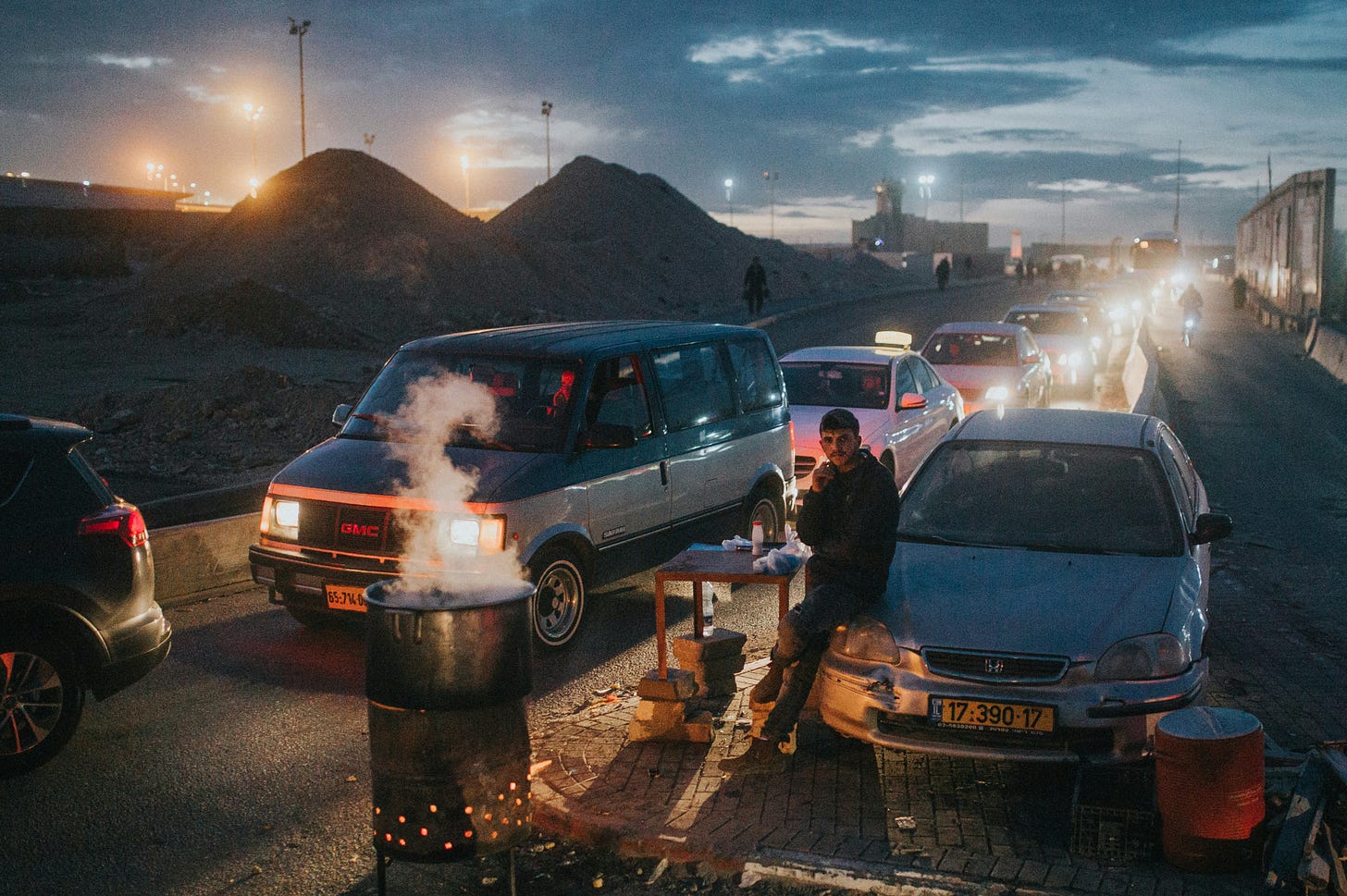RIMPAC, Israeli Settlements, Books at War, and More
The latest at Inkstick Media.
Hello, everyone.
Every couple years, the largest military games in the Pacific – RIMPAC – are held once again, and every couple years, they get even bigger. But they remain important, as Jon Letman reports, RIMPAC highlights the potential for cooperation and conflict in the Pacific and beyond.
Meanwhile, as the war in the Gaza Strip rages on, Israel’s far-right government has seized the moment to push forward with drastic expansions of illegal settlements. Yet, as Alexander Langlois argues, these settlements have proven a detriment to US policy aims in the region.
That’s not all we’ve got at Inkstick. And if you’re not already, please follow us on Twitter, LinkedIn, Threads, Facebook, Instagram, and YouTube.
“What Does Artificial Intelligence Mean for Black Futures?” by Theresa Hice-Fromille & Sarah Papazoglakis (July 15)
Black women artists are at the forefront of disrupting disinformation targeting communities of color and identifying and documenting biases and racialized propaganda that plague recently launched generative artificial intelligence systems — even as their public and private uses proliferate.
“The Pacific’s Biggest War Games Keep Getting Bigger” by Jon Letman (July 15)
Every two years the US, its allies, and like-minded nations assemble their military forces in Hawaii for Exercise Rim of the Pacific (RIMPAC), the world’s largest maritime exercise. With 29 countries from Asia, the Pacific and beyond, RIMPAC’s host, Commander, US Pacific Fleet, describes the war games as five weeks of cooperation and coordination with the goal of peace and stability in a free and open Indo-Pacific.
“The Rise of Summit Diplomacy” by Adults in a Room (July 16)
Numerous high-profile summits have captured the media in recent years, particularly those with Indo-Pacific leaders. Summit diplomacy is undeniably on the rise in the region. The Reimagining US Grand Strategy program’s June 2024 roundtable brought experts together to discuss this rising trend and its implications for Indo-Pacific security.
“Why the World Should Engage with African Coup Regimes” by Joseph Sany (July 16)
American policy debates seldom include Africa alongside top-priority issues such as Russia’s brutalization of Ukraine, US tensions with China or Middle East wars. Yet more than any other continent, Africa — with its enormous crises, resources and opportunities — will shape the world our children will inherit.
“Israel’s Rapid Settlement Expansion Threatens US Policy” by Alexander Langlois (July 17)
While actions like sanctions are welcome with respect to checking the Israeli settler movement, they come far too late in the game. In the shadow of Israel’s illegal 76-year occupation of Palestinian lands, Tel Aviv’s actions epitomize the accelerated speed of the settler movement’s efforts to claim the West Bank.
“On Moral Passion and the Extremes of Protest” by Nan Levinson (July 17)
At TomDispatch, Levinson notes that in both the cases of Aaron Bushnell’s self-immolation and the campus protests against the Gaza war, we changed the subject. The issue wasn’t this country’s, or any individual university’s role in the war in Gaza — so insisted school authorities, opportunistic politicians, and an obliging media — but free speech and the function of higher education.
“Deep Dive: A Danish Dilemma” by Emily Tamkin (July 18)
In the journal West European Politics, a new paper looks at Denmark’s desire to externalize asylum. To justify the policy, “mask its origins,” and resolve the inconsistency with the party’s own ideology, the Danish Social Democratic government had to take specific steps to reframe the debate.
“The Challenges of the UN’s Doha Process on Afghanistan” by Andrew Watkins (July 18)
In late June, envoys and representatives from more than 25 countries and international organizations gathered in Doha, Qatar, along with representatives from the Taliban under an UN-facilitated framework. Despite controversy and challenges, UN talks have made concrete progress toward more coordinated international engagement.
“What Role Does the Book Play in War?” by Katherine Voyles (July 19)
Books about books abound. Books about war abound. Far thinner on the ground are books about books and about their roles in war. Andrew Pettegree’s “The Book at War: How Reading Shaped Conflict and Conflict Shaped Reading” is a welcome thickener.
From the desk of Patrick Strickland, managing editor of Inkstick Media.
Photo: A Palestinian man stands near a queue of cars at an Israeli checkpoint close to the West Bank city of Ramallah (Cole Keister)





